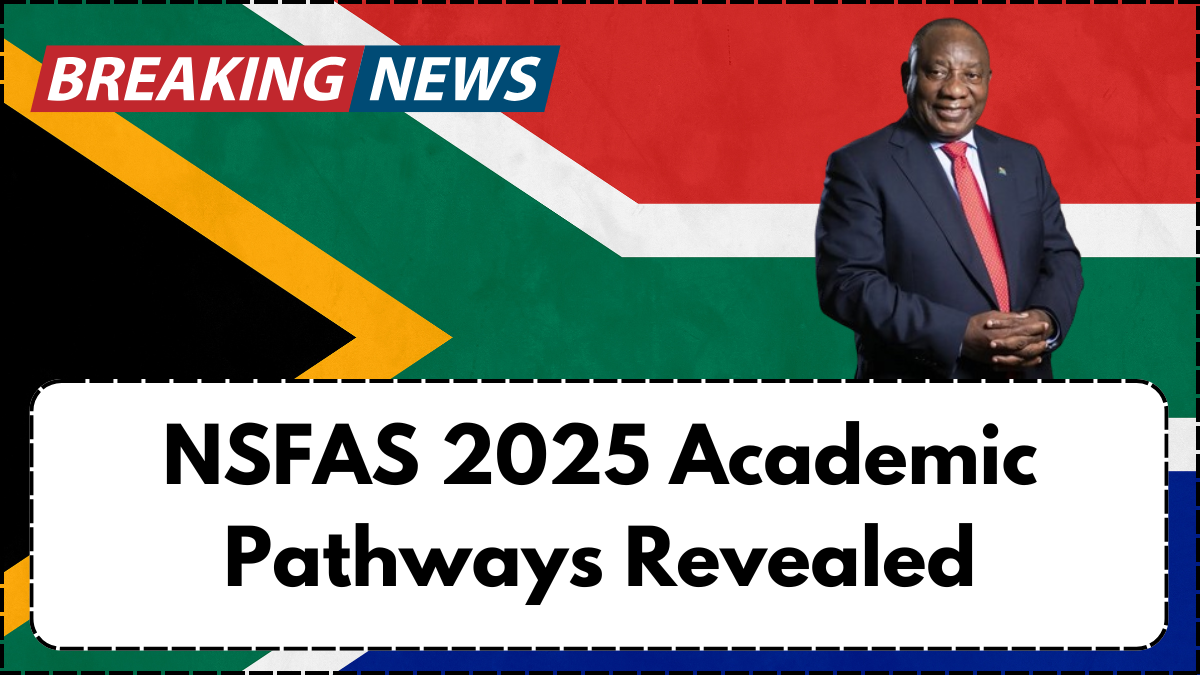For students relying on the National Student Financial Aid Scheme (NSFAS), understanding academic progression requirements is essential for securing and maintaining financial support. The 2025 guidelines establish clear criteria for students at public universities and Technical and Vocational Education and Training (TVET) colleges, ensuring that funding is allocated to structured educational advancement.

Overview of NSFAS Support in 2025
| Category | Details |
|---|---|
| Funding Body | National Student Financial Aid Scheme (NSFAS) |
| Applicable Year | 2025 |
| Expenses Covered | Tuition, registration fees, housing, meals, and academic materials |
| University Pathway | Progression from a certificate to a first undergraduate degree |
| TVET College Pathway | Advancement from PLP to Report 191 Level 1 or NC(V) Level 2 |
| Funding Restrictions | No coverage for additional certificates or program changes |
| Official Website | NSFAS Official Site |
Understanding NSFAS Academic Progression
Academic progression refers to the requirement that students advance from one level of study to a higher level within the same academic discipline. NSFAS enforces these guidelines to ensure financial aid contributes to meaningful educational development. By following these criteria, students can align their course selections with career aspirations while remaining eligible for funding.
NSFAS Academic Progression Rules for 2025
University Academic Pathways
University students must meet specific criteria to continue receiving NSFAS funding:
- First Undergraduate Qualification: NSFAS only funds students advancing from a certificate program to their first undergraduate degree.
- No Funding for Additional Certificates: If a student has already received NSFAS funding for a certificate, they cannot receive financial aid for another certificate program.
- Postgraduate Funding Limitations: Postgraduate programs are generally not funded, with the exception of specific qualifications like the Postgraduate Certificate in Education (PGCE) and, in certain cases, the Bachelor of Laws (LLB).
TVET College Academic Pathways
For students at TVET colleges, the following NSFAS funding rules apply:
- PLP to Higher Qualification: Eligible students can progress from a Pre-Learning Programme (PLP) to either Report 191 Level 1 or NC(V) Level 2.
- Restrictions on Program Switching: Transitioning between NC(V) and Report 191 programs or altering specializations within these programs results in funding disqualification.
- Exception for First-Time Students: First-time entrants (FTFs) who change programs within their first academic term are allowed one switch without losing funding eligibility.
- No Funding for Additional TVET Programs: Students who complete NC(V) Level 4 or Report 191 N4-N6 cannot receive NSFAS funding for another qualification within these categories.
NSFAS Advance Payments for 2025
To facilitate a seamless start to the academic year, NSFAS disburses advance payments to universities and TVET colleges. These pre-payments ensure that institutions have the necessary financial resources to support students from day one, preventing delays in accessing educational materials and services.
Alternative Study and Career Paths After Matric
For students who have completed matric but do not qualify for NSFAS funding, there are various alternative options to consider:
- University and TVET College Education: Students can explore alternative funding solutions, such as Fundi student loans or bursaries offered by the Ikusasa Student Financial Aid Programme (ISFAP).
- Private Institutions: Specialized training may be available at private colleges, though funding opportunities vary by institution.
- Vocational Training and Apprenticeships: Learnerships, apprenticeships, and internships provide practical training and a direct path into employment.
- Immediate Employment: Some students may opt to enter the workforce directly after matriculation.
- Entrepreneurship: Those with business aspirations can explore self-employment and startup opportunities.
Frequently Asked Questions (FAQs)
1. What costs does NSFAS funding cover?
NSFAS financial aid covers tuition fees, registration costs, housing, meals, and essential study materials to help students focus on their education without financial strain.
2. Can I receive NSFAS funding for two undergraduate degrees?
No, NSFAS funding is strictly for a student’s first undergraduate qualification. Additional degrees are not covered.
3. Does NSFAS cover postgraduate studies?
Generally, NSFAS does not support postgraduate education. However, exceptions exist for the Postgraduate Certificate in Education (PGCE) and some Bachelor of Laws (LLB) cases.
4. What happens if I change my course or specialization?
Switching programs, particularly at TVET colleges, could lead to a loss of NSFAS funding. It is crucial to understand the rules before making changes.
5. How does NSFAS ensure students have financial support at the start of the academic year?
NSFAS makes advance payments to institutions so that students can access necessary academic resources without delays.
6. What are the alternative funding options for students who do not qualify for NSFAS?
Students can consider Fundi student loans, ISFAP bursaries, or other private funding sources to support their education.
By understanding NSFAS academic progression guidelines, students can make informed decisions about their education while ensuring continuous financial support. Adhering to these regulations helps maintain eligibility and enables students to successfully complete their studies without financial barriers.
Click here to learn more
Pari is a passionate writer known for captivating stories that blend imagination and reality. Inspired by travel, history, and everyday moments, Pari crafts narratives that resonate deeply with readers.